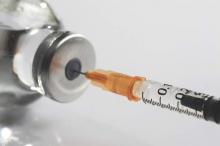A second dose of a bivalent whole-cell (BivWC) oral cholera vaccine – delivered 14 days after the first dose – had little effect on antigen-specific antibody–secreting cell (ASC) responses in a cohort of 21 Haitian adults, suggesting that the current cholera vaccine dosing schedule may not be optimal for boosting immune response.
Immune response to the BivWC vaccine was significant 7 days after the first dose was received. At baseline, the O-specific polysaccharide (OSP)–specific IgA ASC levels for both the Ogawa and Inaba serotypes were near 0. After 7 days, the OSP-specific IgA ASC level for the Ogawa serotype was 6.9 cells per million peripheral blood mononuclear cells and 9.5 cells per million PBMCs for the Inaba serotype. The seroconversion rate was 64% for Ogawa and 73% for Inaba.
A second vaccine dose was administered 14 days after the first dose in accordance with the medication label. However, at the second follow-up – occurring 7 days after the second dose was delivered – OSP-specific IgA ASC levels for both serotypes had fallen back to near baseline levels. Seroconversion did increase slightly for both serotypes, rising to 76% for Ogawa and 81% for Inaba.
“While the 14-day interval may allow for the delivery of two vaccine doses to people during an outbreak as quickly as possible, it is not clear whether this is a sufficient time period to generate sufficient immunologic memory in order to achieve a prime boost effect with the second vaccine dose,” the investigators said.
Read the full study in PLOS Neglected Tropical Diseases (doi:10.1371/journal.pntd.0004753).


